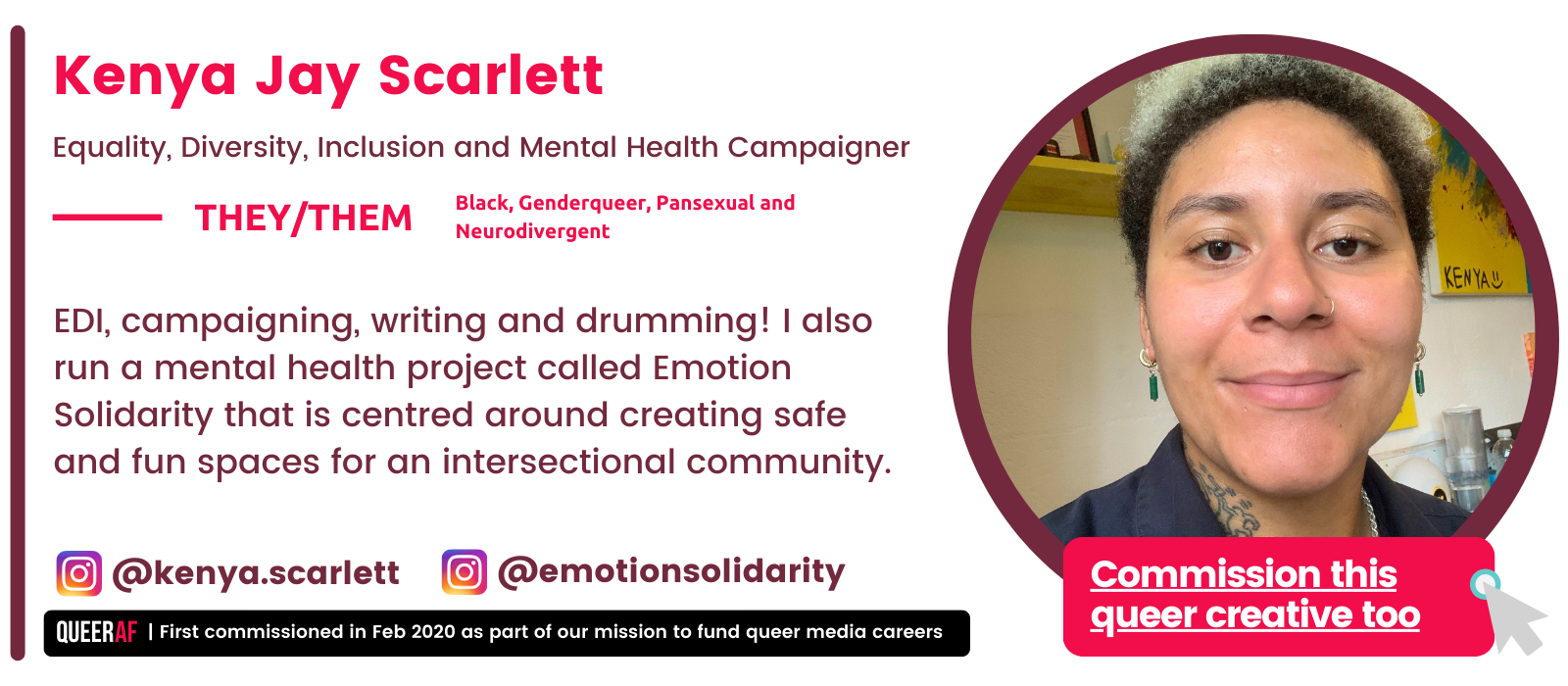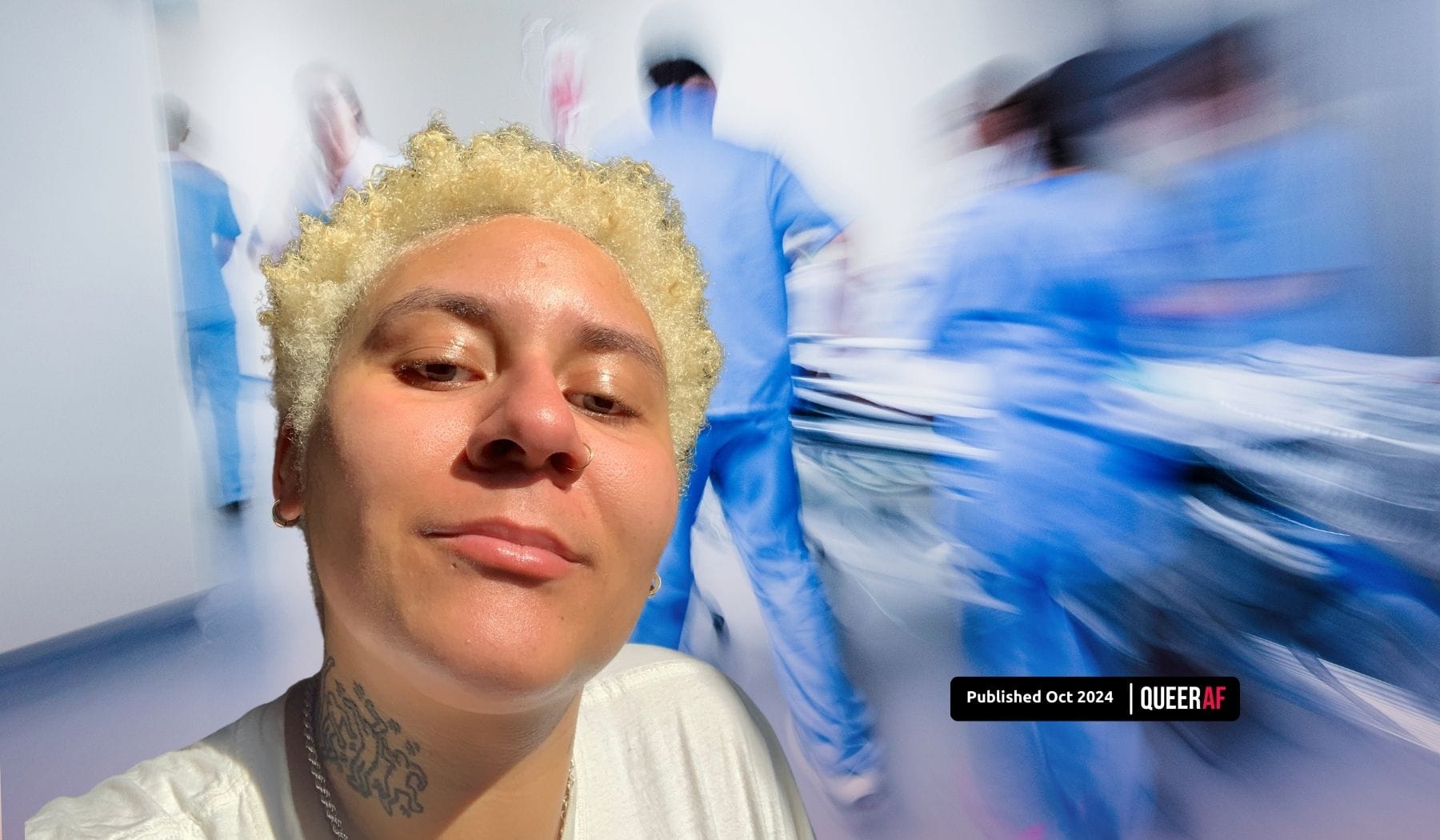
I think most, if not all, who have had to navigate the mental health system in the UK have been told you may have to wait months to years on a waiting list to access help.
There is a crisis in the UK for people accessing healthcare, and further barriers can arise if you are someone from a marginalised group, like myself.
I am proud of where I have gotten to in my life, and I feel content. But happiness isn’t something that has come easily to me as a pansexual, genderqueer person of colour who has experienced mental health conditions.
Two-thirds of Black people experience prejudice from healthcare professionals, and Black women are four times more likely to die during childbirth.
Black people have higher detention rates under the Mental Health Act than white people and are at higher risk of developing mental health problem. Those figures are even higher for people who are Black and trans. So why are we less likely to receive support?
The answer is racism.
All Black people in the UK experience racism no matter what age, whether physically, verbally, or through the racist system and structures that still exist. Think about the 15-year-old girl strip searched by police without consent or the Sex Education actor pepper sprayed and wrongfully arrested.
Experiences such as these can cause trauma, which transfers into the healthcare system. These can lead to mental ill health such as anxiety, depression, post-traumatic stress disorder (PTSD), psychosis and more. There is a lack of safe spaces in healthcare that leaves patients feeling isolated.
I, like others, have felt the heavy weight of discrimination. Experiences of racism, and growing up navigating the cruel system that gave me trauma, led to my mental health taking a beating.
The bruises cemented themselves on my body for such a long time that I didn’t think there was ever going to be a point where I could experience the happiness I feel now. Just being content back then would have been enough.
During my mental health journey, I have struggled to get diagnosed with disorders I knew I had after self-educating. I couldn’t even tell you the amount of time I’ve spent asking for help, but it was met with nothing, or the GP saying that I ‘just had anxiety’. Eventually, once diagnosed, came the challenge of getting help for said diagnoses.
I have had experiences where I have been in hospital fighting for my life, but I was still left to figure it all out on my own. It felt like being a Black person in those situations was the reason that I wasn’t taken seriously, even though I was able to articulate how I was feeling and what was going on for me.
I wasn’t trusted to know how I was feeling. I was seen as being dramatic and intense, the stereotypical angry Black woman trope. This gaslighting slowed me down in getting the help I needed because it came from a healthcare system where intersectionality and anti-racism doesn’t exist.
I reached breaking point and had to set up a Crowdfunder to access private healthcare. Only then was I able to get the right support. My mental health drastically improved.
It was a reminder I shouldn’t have needed - that if you access the right help, positive work can be done.
Never underestimate the power of community, my network has got me through some difficult years at a time it felt like I had nothing. Remember to surround yourself with people who understand you and want to be there for you.
After healing trauma and finding blissfulness, I started to notice something else about myself now that my headspace was clearer, I wasn’t neurotypical!
I can’t believe after all my experiences in school, jobs and the healthcare system, nobody thought that I could be neurodivergent.
Instead, I was passed off as just being a naughty kid, not intelligent, overreactive and intense, which is a similar story for other Black neurodivergent people. We are smart, creative, caring, and passionate people. Because I had a Black body, and I wasn’t believed in healthcare spaces, it took so long to get the right diagnosis and support.
So as I joined another waiting list, I couldn’t help but think, when will I finally be seen?
But then I remembered how powerful I felt when I stopped and saw, and trusted myself.

More than a month
At QueerAF, we're obsessed with journalism and storytelling that puts lived experience in the driving seat.
So we're thrilled to be able to bring you Nathanael's perspective - and those of several other Black queer creatives - this Black History Month.
As a small indie publisher, we've done this series on a shoe-string budget. Everyone's been paid, and received mentoring and support - but imagine what we could do with more resources.
This month, our ask to you is this: if you learn, grow from or enjoy our UK Black History Month series, consider investing in it.
Help us fund even more Black, queer and trans creatives to tell stories - all year around.










